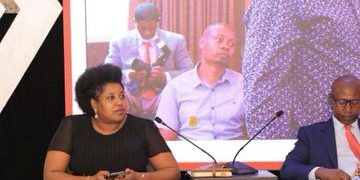Sarah Kagingo, the Director of SoftPower Communications, has spoken out on the need to desist from inflammatory discussions regarding the situation currently unfolding in the Democratic Republic of Congo (DR Congo).
“So much has been said on social media. We must be careful not to inflame the situation,” she said Thursday while speaking to journalists during the Uganda-DR Congo Business Summit Post Event at Serena hotel in Kampala.
“We cannot conduct business amid bullets. What we saw in Goma shouldn’t be a subject for major discussions in Uganda,” she noted, referring to demonstrations in the eastern DRC town following the M23 occupation of Bunagana town near the border with Uganda.
Speaking at the same event, First Deputy Prime Minister Rt Hon Rebecca Kadaga, touched on the security situation in Ituri Province where Uganda Peoples’ Defence Forces (UPDF) troops are battling Allied Democratic Forces (ADF) rebels.
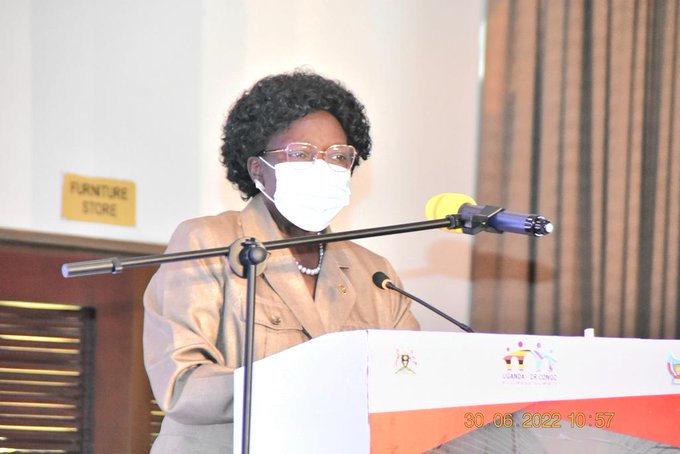
Kadaga, who is also the Minister for East African Community Affairs, was confident that the regional force agreed upon by Heads of State “will deal with that situation so that business can boom in that area”.
“Children and women in Ituri will have a peaceful life working and making some money,” Kadaga assured journalists.
Asked how insecurity in DR Congo will influence the business environment, especially for Ugandan traders, Odrek Rwabwogo, a presidential advisor for special duties, said “the higher the risk, the higher the reward”.
“Insecurity is short-term. We now have EAC Standby Force which shows the importance of trade and business. This place used to be a no man’s land. This insecurity has been with us but there are solutions. It is being handled. We have to work,” he said.
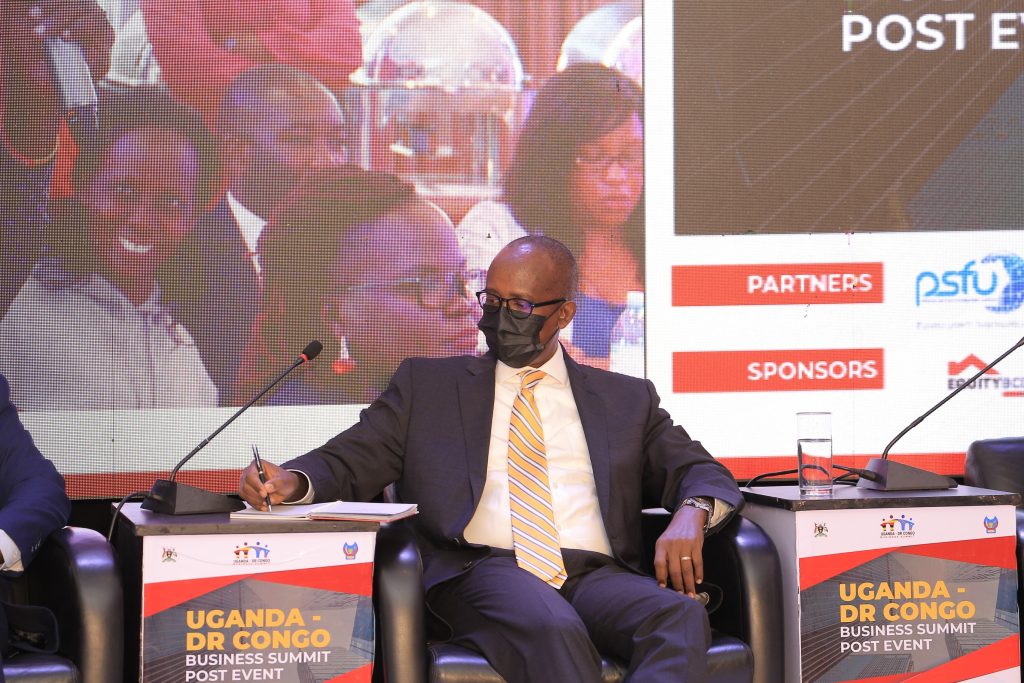
When pressed further on the matter by SoftPower News journalist, Rogers Atukunda, who feared a “potential South African xenophobic situation against Uganda’s business community in DRC”, Rwabwogo said some “problems don’t have an instant solution”.
“It is like a chronic disease that you don’t have an instant cure for. There are 144 militia groups in eastern DR Congo (some put the number at 344). Security chiefs were in Goma in the same hotel as us discussing how to deal with ADF and M23. The situation will be handled.”
Ceasefire
While appearing on NTV last week, Kagingo called on everybody that is a party to the conflict in DR Congo to cease fire and allow the people of the Great Lakes Region to thrive by trading and investing together.
Kagingo and John Walugembe, the Executive Director of the Federation of SMEs, had been invited to discuss the question: “Will DR Congo violence undo efforts to grow opportunities for Uganda?”
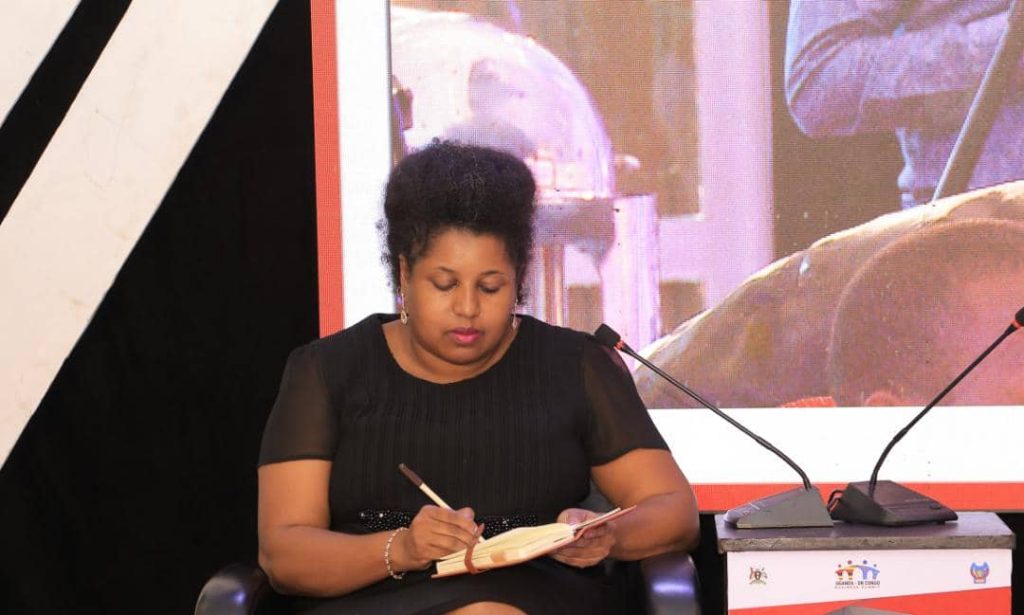
“We must all be invested in peace and stability, we cannot trade or do any business amid bullets,” Kagingo pointed out, adding that business operates in a favorable environment where people and goods are free to move.
“That environment is shaped by policies made by the government.”
She said Uganda Airlines now has a daily flight to Kinshasa and they are also exploring having routes from Entebbe to Lubumbashi and Goma which will all further ease trade and movement of people.
“Uganda is not a party to the conflict in DR Congo, we have subsisting bilateral security agreements with DR Congo.”
Walugembe, in turn, said there has been a belief that Ugandans want to benefit from the resources of Congo, “that is something we need to debunk to ensure that our relationship with Congo remains intact”.
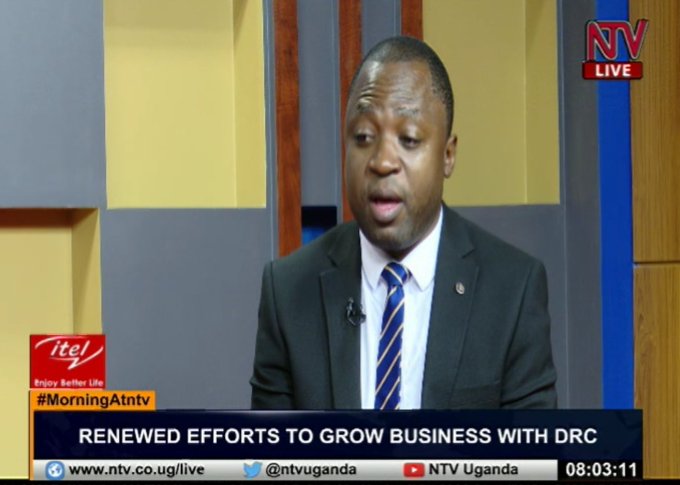
“We have seen protests in Goma against Rwandese and Ugandans which is a pity because it’s not a good thing to see our Congolese brothers and ourselves being divided on the basis of propaganda.”
He added: “People must appreciate that with risk comes opportunity. We have a security situation in DR Congo but what that means also is that there are a lot of opportunities that are created either during or after that security situation.”
We can’t do business amid bullets
During a discussion on the DRC conflict hosted by Civic Space TV last Friday, Kagingo was optimistic about the future of the region.
“The future of our region is very bright. There is interconnectedness and we are now focused on markets and products,” she noted.
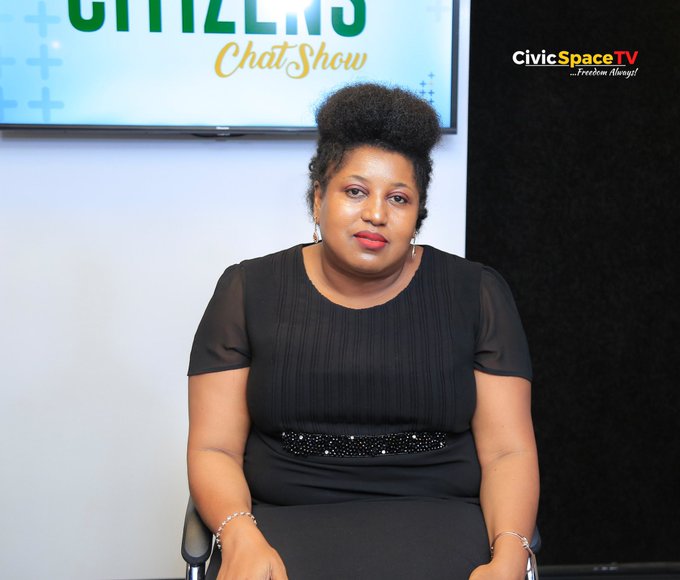
She cited the great participation during the summit in Goma despite the insecurity caused by the M23 rebellion.
She said M23 is just one of the many groups in Eastern DRC and the East African Community (EAC) mechanism is welcome plus the efforts of operation Shujaa.
“We can’t conduct any business amidst bullets,” she noted, adding, “Whenever we are discussing these issues, we must be woken to the sensitivities because of propaganda on Social Media and reckless statements by some politicians in the region.”
Appearing on the same platform, Mwambusya Ndebesa, a lecturer at Makerere University, stated: “Even when you take the troops to Eastern Congo without addressing the origin of the challenges, you will not solve the problems.”
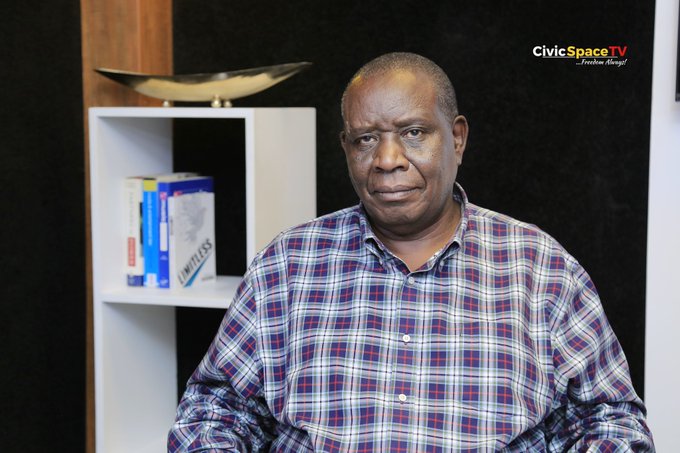
He said as far as the conflicts in the Great Lakes Region are concerned, the elephant in the room is the transnational ethnicity.
“In DRC, the ethnic Banyarwanda are concerned about their citizenship rights and whether they can be driven out or not.”
He went on: “Do we know why M23 is fighting? We need to go deep to understand the underlying cause of the fighting.”
What DRC’s entrance into EAC means
Kadaga, says 2022 will be remembered as a phenomenal year for the EAC following the admission of the DRC which brought an addition of nearly 100 million people meaning the people of EA have now got a bigger market.
She was early this week speaking during “The EastAfrican Community Post Tax and Budget dialogue for the financial year 2022/23”.
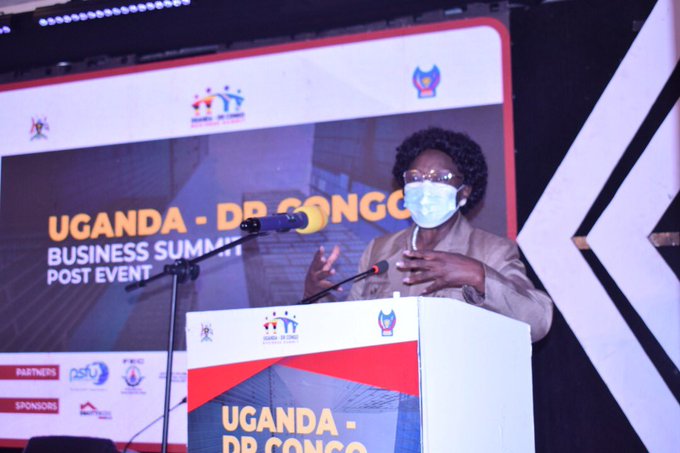
She said another step in the promotion of the industrial sector will be the African Continental Free Trade Area (AfCFTA) “which we hope will spur intraregional trade by encouraging local manufacturing and value addition”.
“Within the community (EAC), if we can attain a full customs union and a common market, a number of challenges which include non-tariff barriers and enclosure of border posts would come to an end,” she noted.
Speaking on the same forum, Moses Kaggwa, Ag. Director of Economic Affairs at the Finance Ministry, said harmonizing taxes in the EAC region is still difficult because national interests are still prominent.
“The Ministry of Finance says that EAC Partner States have reached an agreement on a revamped four-band tariff system, bringing a conclusion to a comprehensive assessment that began in 2016,” he noted.
He added: “We are still struggling as a region to harmonize our taxation systems because member states are still fronting national interests over regional interests.”
